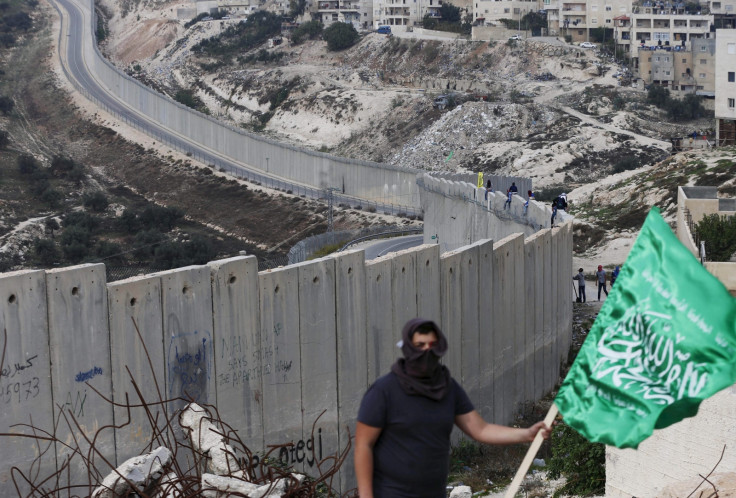Martin McGuinness proved peace is possible between enemies – the Palestinians could learn from him
Like the IRA, Palestinian leaders have tended to opt for what they know best – bloodshed.

There are powerful parallels to be drawn between the unlikely transformation of an IRA terrorist turned peacemaker and the Israel-Palestinian conflict.
Martin McGuinness was a cold-blooded killer, guilty of unspeakable crimes, whose journey from gunman to statesman saw him shake hands with the Queen and stand shoulder-to-shoulder with erstwhile foe Ian Paisley.
Yet for all his sins, he proved peace is possible between sworn enemies. That tragedy and hate, even in an entrenched conflict, does not need to be the status quo. That even those who resort to violence can harbour hope for compromise.
Like the IRA, Palestinian leaders have tended to opt for what they know best – bloodshed. Their hostility runs so deep they're even prepared to kill themselves, if it means Jews die too.
This animosity must be eradicated for peace to finally take root. To achieve this, a Palestinian leader must emerge that speaks to his own people with the same voice he uses on the world stage, instead of condemning murder in public while condoning it in private.
He must foster an atmosphere of hope, where the promise of a state is viewed as the fulfilment of a dream rather than a sell-out to Zionists. He must tackle decades of ingrained prejudice and re-educate his followers to respect human life.
The damage was done on Yasser Arafat's watch. He had almost 40 years as the sole figurehead of the Palestinian cause to prove himself worthy of that title – he failed. Or rather, made no attempt to succeed.
What became of the man who, on receiving the Nobel peace prize, dreamed of "a home overlooking our neighbours, where our children will play with their children and will compete in picking flowers"? What became of the man who claimed: "Do not let the olive branch fall from my hand"?
He never existed. For all his brave words, Arafat knew only one monstrous tactic. Time and again, he refused to fulfil his promise to achieve the "peace of the brave." Instead, he and his regime took the easy, evil, option.
Does a Palestinian leader capable of repairing the damage and leading his people towards a new destiny now exist? If he does, he will surely come from left field.
Those mooted as possible successors to Mahmoud Abbas, when the first elections since 2005 finally take place, are the usual suspects – Arafat's cousin Nasser al-Qudwa, technocrat Mohammad Shtayyeh, intelligence chief Majid Faraj and chief negotiator Saeb Erekat.
The only politician thought capable of uniting Gaza and Ramallah – Hamas and Fatah – and therefore able to carry a popular mandate, is convicted murderer Marwan Barghouti, currently languishing in jail – a place many fairly feel McGuinness should have spent most of his life.
The ringleaders of perhaps the world's deepest and most depressing conflict might learn a long overdue lesson from the conversion of Martin McGuinness. That there is another way. A peaceful way. That after Abbas, there need not be yet another abyss.
Richard Ferrer has been the editor of the Jewish News since 2009.
© Copyright IBTimes 2025. All rights reserved.






















